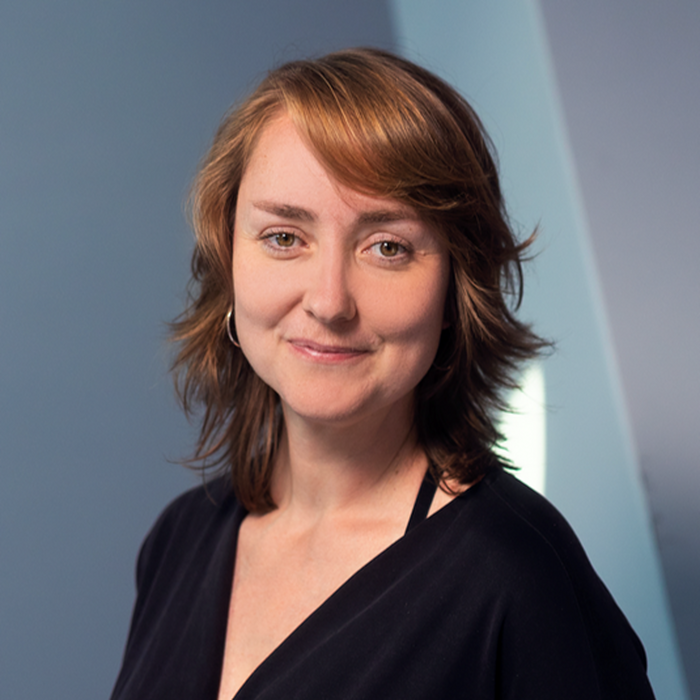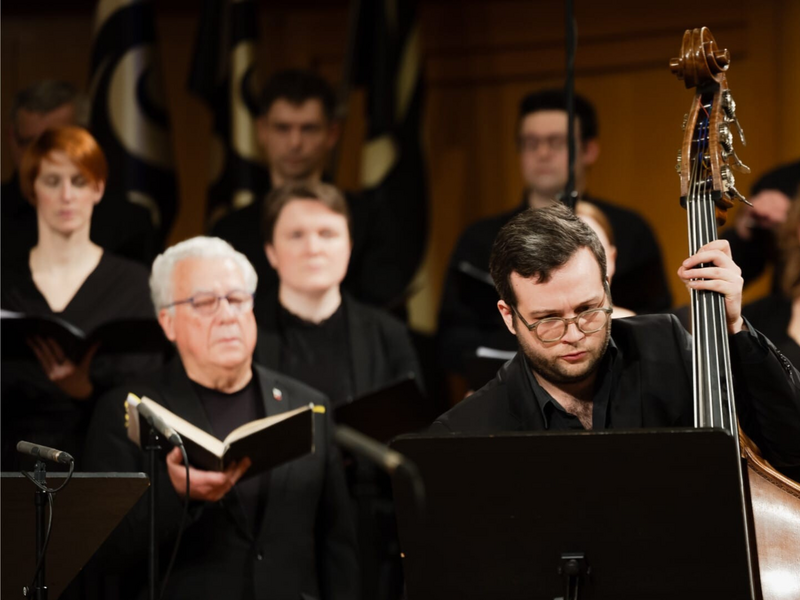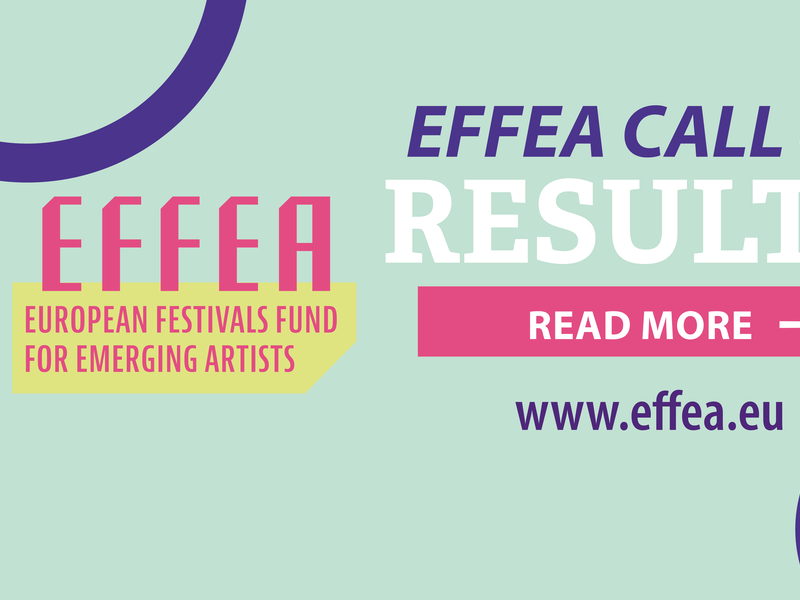World Environment Day
World Environment Day is held annually on 5 June. On this day, the United Nations encourages worldwide awareness and action to protect the environment. Each year has a specific theme. This year's theme was solutions to plastic pollution under the campaign #BeatPlasticPollution, supported by many structures worldwide, such as non-governmental organisations and government entities. For this occasion, we interviewed Tamar Brüggemann, co-director of the festival Wonderfeel.

As Co-director of the Festival Wonderfeel, which actions are you implementing to get closer to the model of a sustainable festival?
In 2015, I co-founded Wonderfeel, which is now one of the biggest outdoor festivals for classical music in Europe with more than 100 performances by over 400 musicians for almost 10.000 visitors in three days. On the 60 acres of nature reserve (near Amsterdam) we build six stages which offer classical music in all its guises: from mediaeval to minimal, from classical hits to brand new notes, from solo to symphonic, with lines to jazz, pop and non-Western music. To a modest extent, we also present poetry, walks and talks, yoga and various activities for children. The green scenery is not just our beautiful backdrop. We are convinced that relocating classical music to a green environment intensifies the experience. It would be impossible for Wonderfeel to convey the importance of the interaction between music and nature without striving to preserve that same nature in a sustainable way. This sounds more straightforward than it turned out to be during the past editions of Wonderfeel. For instance: the biodegradable PLA cups we used for some years provide little ecological benefits if trash is not thoroughly separated. Using LED lights everywhere is one thing, but simply turning off the lights on stages that are not being used is easily forgotten in all the hustle and bustle. For several years, we used a compost machine that turned our biowaste and biodegradable cutlery into compost overnight, so that our visitors could buy their own waste to use in their gardens. A great eye-catcher and a good way to create more awareness about circularity, but the composting process happened in a slightly less sustainable way than we had hoped.
Steps we have taken in recent years include a smart energy plan with biodiesel-powered generators and use of batteries (the ambition is hydrogen-powered generators!), reusable cups with a deposit, biodegradable tableware, musician transport with (sponsored) electric cars, reuse of our deco material, vegetarian catering for crew, musicians, and collaboration with local vegetable gardens. Last edition, our visitors might have noticed that our food trucks and restaurant no longer serve meat and that, together with several other European festivals, we offset our carbon emissions by planting trees in the European Festivals Forest. This year, we are reintroducing our shuttle bus from the train station to the festival site, because our carbon footprint is largely made up of our audience's travel movements. Fortunately, more and more visitors are coming by bike.

Do you have projects in mind that you would like to implement in the future in your festival?
In our drive towards circularity, we are currently exploring the possibilities of making the festival site more sustainable, using local residual materials. We are currently investigating which residual materials are available in the area and what is needed to make these materials suitable for biobased building. In this, we are working together with Lucas De Man, who, with his Nature Building Project, has several years of experience in building (prototype) houses from biobased materials. He will be Wonderfeel's first 'Festival Doer' (as a counterpart of our ‘Festival Thinker’) to investigate with our nearest neighbours whether we can build new furniture with the biowaste from their farms. The dream is an entire stage made of biobased material, but this will be a multi-year dream. For the coming year(s) we have fledgling plans to have a new percussion set made from biobased material for Slagwerk Den Haag, on which, of course, they can then play a concert at Wonderfeel.
Do you work with environment specialists or would you like to work with them to find innovative solutions?
Sharing knowledge is what we do most and what serves us most. With every step we take, we become more aware of the opportunities that remain to reduce our footprint. Since 2022, Wonderfeel has therefore become the first classical festival to join the Green Deal Circular Festivals. Together with 43 festivals from 14 European countries – including DGTL, Roskilde, Shambala, Mysteryland and Sziget – we are working on the transition to a net-zero and circular festival industry. Because we share our experiences with so many festivals, our learning curve does not depend on that one peak moment in the year, but we can draw on each other's knowledge. Last Wonderfeel edition, we also had our carbon emissions measured by A Greener Festival so that we have a baseline from which to start our roadmap to Net Zero and to circular.
We are currently awaiting the assessment of a Creative Europe application from Tampere University (Finland), to which we have been invited thanks to the European Festivals Association. The project PLAYFEST is set to plan and implement a digital Playbook including a real-time, smart holistic sustainability foot- and handprint calculator through which professionals produce sustainable festivals and tours. Fingers crossed!
How do you think we can encourage festivals to be more mindful of the environment? (a label, a prize, a call for projects maybe?)
Given that, in my experience, our festival sector is already hugely engaged and at the forefront of a transition to a greener future, it would obviously be great if even more festivals – triggered by a label or an award or (yes please) more money through grants – join climate action as well. In addition, festival-goers are also increasingly concerned about the effects of climate change, and a growing number of them demand their favourite festival to take this into account.
The EU aims to be climate-neutral by 2050, but what that date – often set even earlier at national level – means and how festivals (should) relate to this, is not always clear. It would be helpful to get clear guidelines and a standardized way, manageable and accessible to all, of monitoring our carbon emissions as soon as possible.
As a festival sector, let's join hands to develop long-term and evolving climate action plans for our organisations – mindful of our different contexts – including a step-by-step roadmap based upon minimising carbon emissions and mitigating what remains as essential. Let's do what we festivals do best: make a positive impact!
Picture: Wonderfeel Facebook

Wonderfeel 2023
21 - 23 Jul 2023 | 's-Graveland, Netherlands
Wonderfeel is a three-day outdoor festival for classical music with a pop festival’s laidback atmosphere. The 60-acre nature reserve in ‘s-Graveland (near Amsterdam) hosts six Wonderfeel stages, all at a short walk’s distance.
In 2023, we expect to welcome over 9,000 visitors, who will have every freedom to move around the festival site for a simultaneous experience of music and nature. With almost 100 performances, the programme provides a sampling of current classical offerings; from medieval to minimal, from classical hits to brand new notes, with lines to jazz, pop and non-western music. "An ideal mix of idyll and discovery", said NRC Handelsblad.
You can find all their programmation here.
Picture : FestivalFinder.eu


